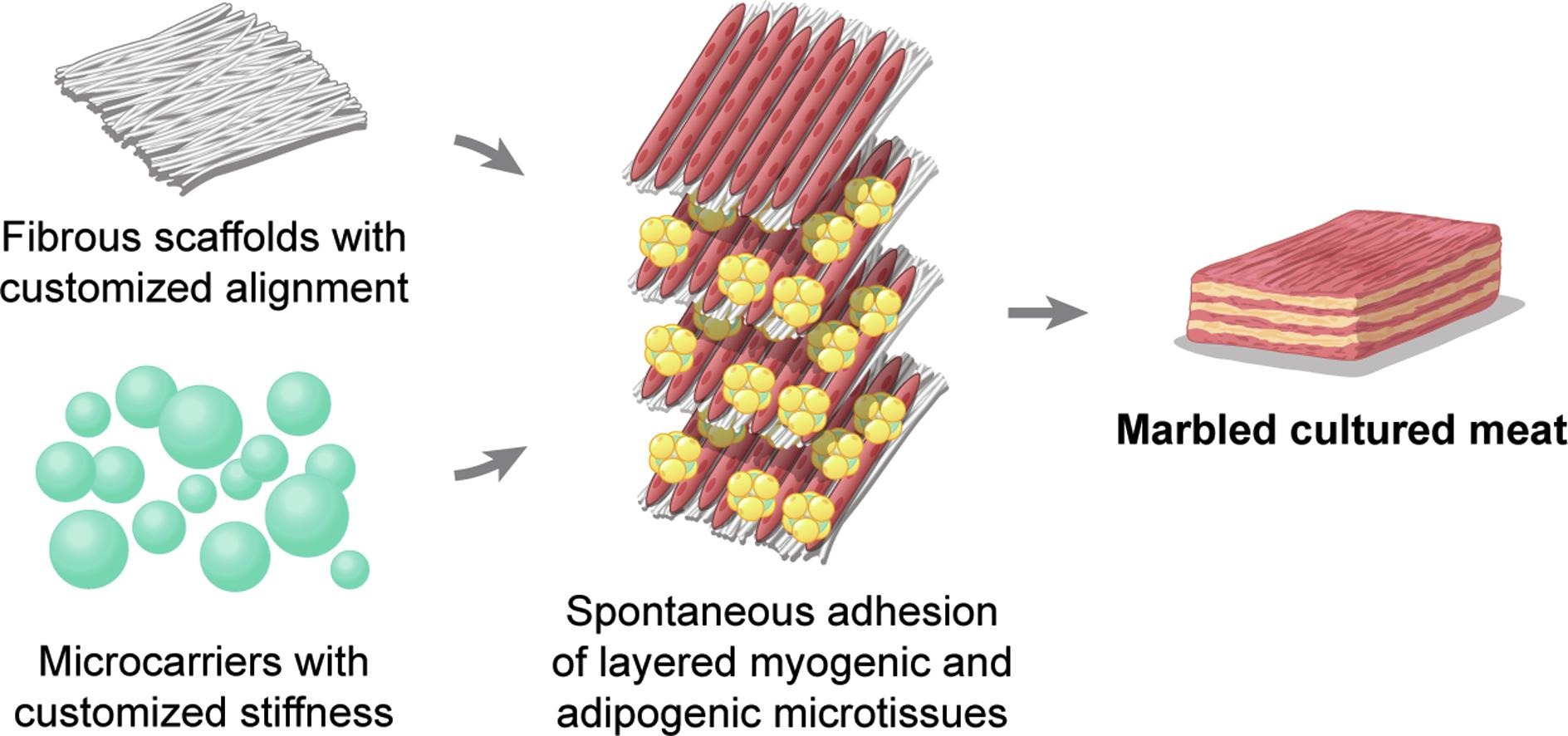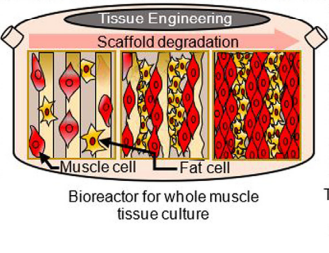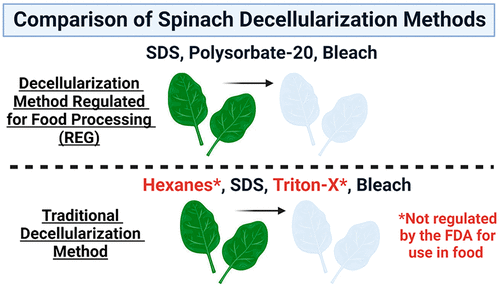- Overview
- Summary
- Funding
- Cite This Publication
Overview
Who: Luke R. Perreault, Richard Thyden, Jack Kloster, Jordan D. Jones, Jordan Nunes, Andriana A. Patmanidis, David Reddig, Tanja Dominko, Glenn R. Gaudette
Published: June 12, 2023
Where: Frontiers in Food Science and Technology
Key Takeaway: Using agricultural waste products could improve the affordability and sustainability of cultured meat scaffolds
Research Topics:
Summary
Luke Perreault et al study the use of agricultural waste products as scaffolds for cultured meat. Scaffolds are prepared by decellularizing the products to leave just the cellulose-rich structural materials, a fast and low-cost production method. Previous work on decellularized plant-based materials has focused on edible plant materials, like spinach leaves, apples, and broccoli. However, an ideal process would avoid food products with inherent value in the food chain and instead commoditize products that are normally discarded. The authors find that decellularized corn husk and jackfruit rind can be decellularized and result in scaffolds with structures similar to meat. Bovine satellite cells and quail myoblast cells adhere to both scaffolds and show bead-to-bead transfer. Continued effort in developing these scaffolds could improve the affordability and sustainability of cultured meat.
Cite This Publication
Perreault, L. R., Thyden, R., Kloster, J., Jones, J. D., Nunes, J., Patmanidis, A. A., ... & Gaudette, G. R. (2023). Repurposing agricultural waste as low-cost cultured meat scaffolds. Frontiers in Food Science and Technology, 3, 1208298.
You Might Also Like...

Engineering multicomponent tissue by spontaneous adhesion of myogenic and adipogenic microtissues cultured with customized scaffolds
N. Stephanie Kawecki, Sam C.P. Norris, Yixuan Xu, Yifan Wu, Ashton R. Davis, Ester Fridman, Kathleen K. Chen, Rachelle H. Crosbie, Andrea J. Garmyn, Song Li, Thomas G. Mason, Amy C. Rowat

Enzymatic degradation and ageing of additively manufactured soy-based scaffolds for cell-cultured meat
A. Garrett, K.L.M. Avegnon, L. Delbreilh, J. Segurola, N. Delpouve, M.P. Sealy

Decellularization: Leveraging a Tissue Engineering Technique for Food Production
Jordan D. Jones, Richard Thyden, Luke R. Perreault, Benjamin M. Varieur, Andriana A. Patmanidis, Lancelot Daley, Glenn R. Gaudette, and Tanja Dominko


